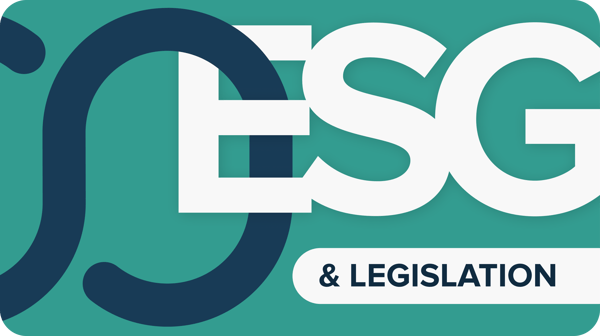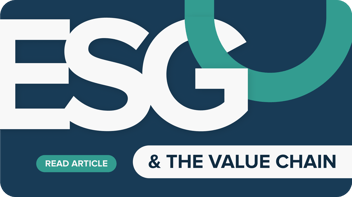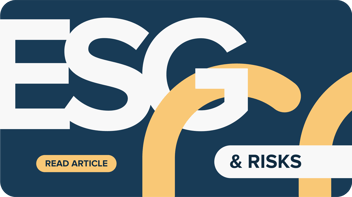5+1 EU/UK regulations on ESG and the value chain: A quick zoom
In the first blog post of this series, we highlighted the intricate connection between ESG and the value chain. We continue our deep dive by looking at existing and upcoming ESG regulations in the EU and the UK.
Let’s start with 1 from the UK and then move to 4+1 from the mainland ⬇️

UK Modern Slavery Act
The Modern Slavery Act was introduced in the United Kingdom in 2015. It requires companies above a certain turnover threshold (£36M or €42M) to publish an annual statement on slavery and human trafficking. This includes avoiding these practices in their supply chain. In the statement, they have 2 options:
- describe the efforts they’re taking to ensure the company and their supply chain are free from such practices.
- declare that they haven’t done anything to investigate and eradicate slavery and human trafficking in their company and supply chain
LkSG (Lieferkettensorgfaltspflichtengesetz or German Supply Chain Act)
The LkSG came into effect in 2023, only taking in its scope companies with over 3.000 employees and main activities or HQ in Germany. In 2024 this was extended to all companies with over 1.000 employees. The LkSG is directly related to a company's value chain, as it imposes due diligence requirements. Companies covered by this law need to assess and address human rights and environmental risks and impacts in their supply chains, influencing how they manage and monitor their value chain activities.
CSRD (Corporate Sustainability Reporting Directive)
The CSRD comes into effect in 2024 for the first wave of big companies having to report on their 2024 data in 2025. The biggest bulk of reporting companies will follow in 2026 (reporting on Fiscal Year 2025). The CSRD mainly applies to companies that fit at least 2 of 3 criteria:
- 250 employees
- net turnover of €50M
- assets on balance of €25M
It requires companies to not only disclose information related to their own direct environmental, social, and governance (ESG) practices, but also to report on their value chains’ impacts, risks, and opportunities. The main topics are Climate Change, Water, Pollution, Biodiversity, Resource Use, Workers in the Value Chain, Affected Communities, End Users and Consumers.
CBAM (Carbon Border Adjustment Mechanism)
The CBAM’s transitional period started in 2023. The permanent system will enter into force in 2026. CBAM is linked to a company's supply chain (i.e. upstream value chain) by placing a carbon price on imports of certain carbon-intensive products (cement, iron, steel, aluminium, fertilizers, electricity, hydrogen). This means companies involved in the production or import of goods into the EU will need to connect a carbon footprint to these imported goods and eventually mitigate the carbon emissions associated with their products. It could impact decisions related to supply chain practices and sourcing of materials.
EUDR (EU Deforestation-Free Regulation)
The EUDR entered into force in 2023. EUDR is directly linked to a company's value chain. It will require any company importing (from their upstream value chain) or exporting (to their downstream value chain) certain commodities from the EU to prove the products haven’t caused deforestation. The commodities targeted at this time are cattle, cocoa, coffee, oil palm, rubber, soy, and wood. It also includes products derived from these products, like meat or chocolate. Companies in the affected sectors are required to conduct due diligence to ensure that their supply chains are not linked to deforestation. This regulation influences sourcing practices and value chain transparency efforts.
Extra +1
That’s 4, so over to the “+1”. The last regulation we want to highlight is the CSDDD or CS3D for Corporate Sustainability Due Diligence Directive. We have added it to this special category, as much uncertainty still existed around this directive at the time of writing this blog post (beginning of March 2024). As the result of political horse-trading between Germany, Italy, and France no definite vote had happened yet, and the scope had recently been diluted to increase the possibility of making it through the vote. It was thus unclear whether and in which shape the CSDDD would happen. The most important element to highlight is that it resembles the LkSG with its focus on human rights and environmental topics in the value chain.
In any case, it’s quite clear that the regulators also realize that you can’t have a sustainable company without a sustainable value chain. They’re pushing companies to influence their business relationships to become more environmentally and socially responsible. But compliance to regulation isn’t the only reason to avoid neglecting your value chain. In our next blog post, we’ll zoom in on the risks and opportunities of getting your value chain in order.
Want to know more about the risks of neglecting your value chain?
Watch Hans van Dam's expert session on Contract Management Day 2024 ⬇️




